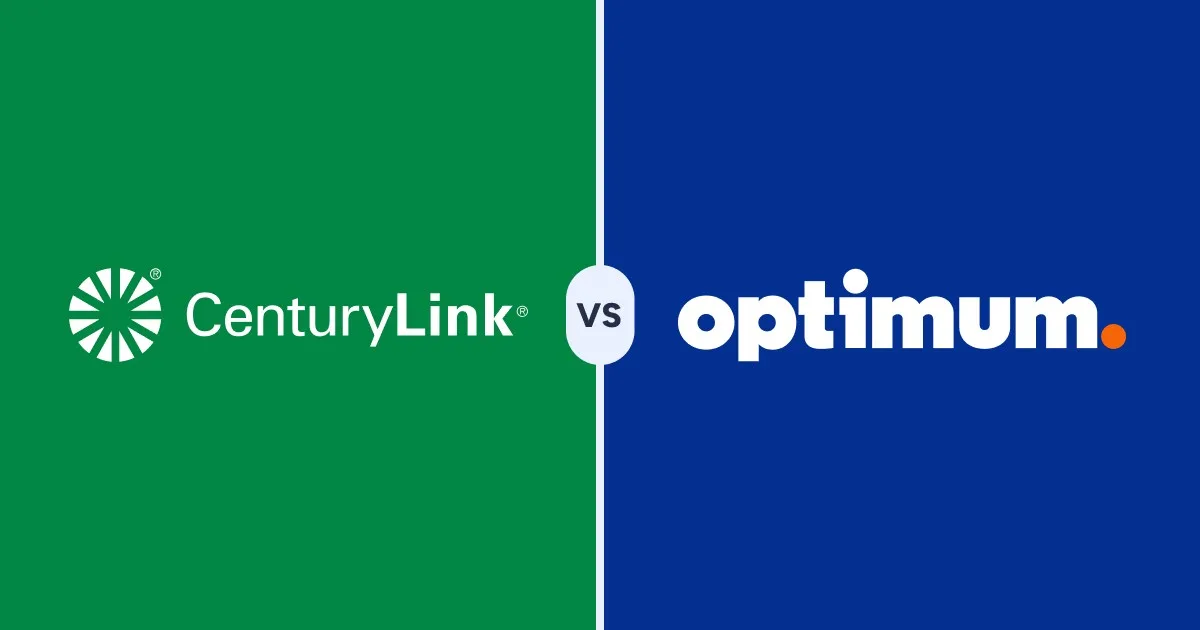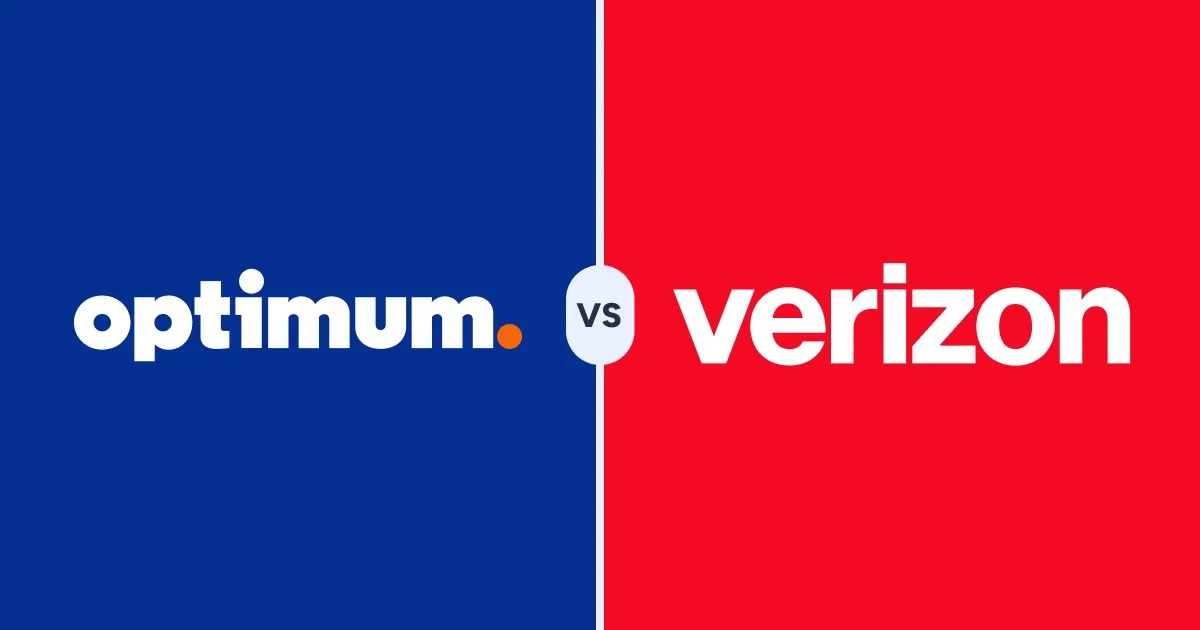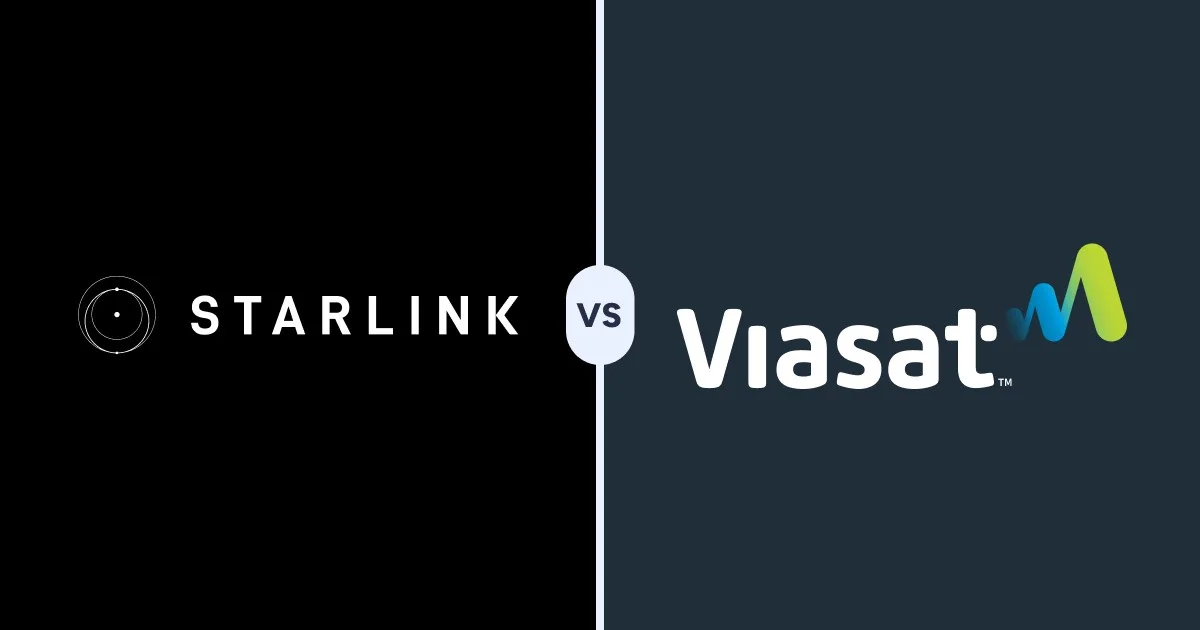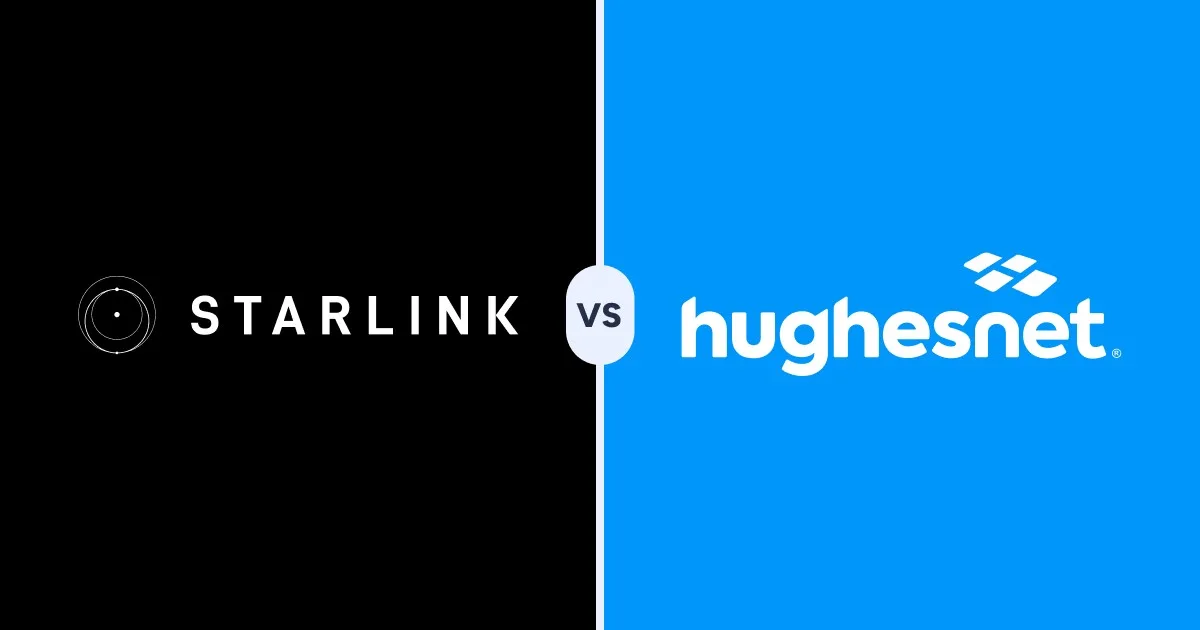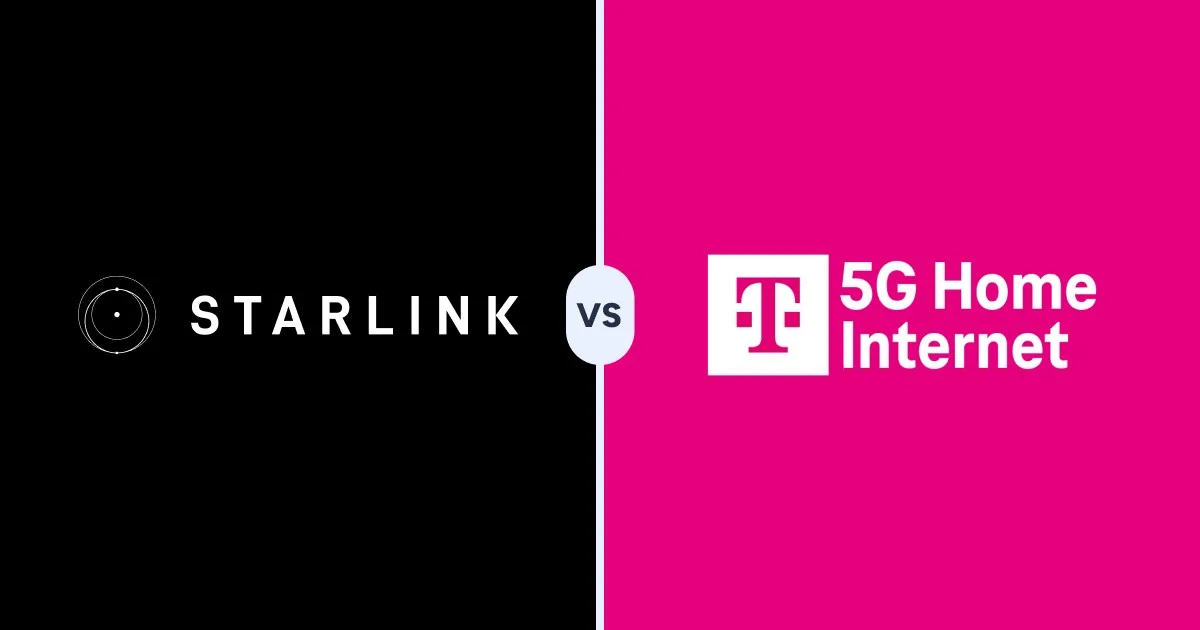T-Mobile vs. Hughesnet: Which Internet Provider Is Best for You?
Compare two wireless internet providers with incredible coverage
Nov 19, 2025 | Share
Provider Comparisons (Versus)
-
Best speeds
- Customer rating: 4.1/5*
- Starting price: $50/mo.†
w/ AutoPay, plus taxes & fees. - Speed: Up to 415–498Mbps
- Internet type: 5G Home
- Data cap: Unlimited
- Contract: None
-
Best availability
- Customer rating: 2.9/5*
- Starting price: $39.99/mo.‡
for first 12 mos. - Speed: 25–100Mbps
(stated speeds are not guaranteed) - Internet type: GSO Satellite
- Data cap: Unlimited
- Contract: 12 months, 24 months
Data as of 11/14/2025. Offers and availability may vary by location and are subject to change.
* Based on our annual Customer Satisfaction Survey
† Guarantee exclusions like taxes and fees apply.
‡ Minimum term required and early service termination fees apply. Monthly Fee reflects the applied $5 savings for ACH enrollment. Offer may vary by geographic area.
Compare T-Mobile and Hughesnet head to head
Although both T-Mobile and Hughesnet provide wireless internet, they have a lot of differences. T-Mobile connections are generally faster and cheaper, and they have much lower latency than Hughesnet plans.
Hughesnet can match T-Mobile in certain aspects, but it’s always a trade off. While the cheapest Hughesnet plan has a lower price tag compared to T-Mobile, you will experience high latency and slower speeds. Hughesnet Fusion plans can provide low-latency connections, but are considerably more expensive. In other categories, like speed, data caps, and contracts, T-Mobile wins every time. The only definitive advantage that Hughesnet has is its huge coverage, and even then, T-Mobile’s only slightly behind.
On this page:
Plans and pricing | Extra fees | Customer ratings | Internet types | Data caps | Contracts | Installation | Availability
On this page:
Want to know if T-Mobile or Hughesnet are in your area?
Take a look by typing in your zip code below.
Plans and pricing: T-Mobile vs. Hughesnet
T-Mobile has a simple, straightforward pricing method. Hughesnet’s pricing is less so. There are several important things to note when looking at Hughesnet plans. First, prices go up after the first twelve months. Second, there are additional costs like equipment fees and data overage fees. Be aware of these in order to avoid unpleasant surprises on your bill.
Hughesnet does offer more plan options than T-Mobile, but the main thing you pay for in the more expensive plans is additional data, not speed. T-Mobile offers unlimited data, which is hard to beat.
T-Mobile plans and pricing
| Package | Price | Speed |
|---|---|---|
| Rely Home Internet | $50/mo.* w/ AutoPay, plus taxes & fees. | Up to 415Mbps |
| Amplified Home Internet | $60/mo.* w/ AutoPay, plus taxes & fees. | Up to 498Mbps |
| All-In Home Internet | $70/mo.* w/ AutoPay, plus taxes & fees. | Up to 498Mbps |
Data as of 11/14/2025. Offers and availability may vary by location and are subject to change.
* Guarantee exclusions like taxes and fees apply.
T-Mobile’s 5G Home Internet plan is a great choice for rural areas. Even compared to some wired plans like DSL, it’s still a good value in terms of speed versus cost—plus you get unlimited data, which is a big deal for wireless providers.
T-Mobile’s 5G network can reach high speeds, but the highest speeds aren’t always available across T-Mobile’s entire coverage area, especially in particularly remote areas where people rely on wireless connections. If you opt for the Rely plan, you’ll get a High-performance Gateway or a High performance premium Wi-Fi 7 Gateway router if you sign up for a Amplified or All-In plan.
Customers in larger cities are more likely to get 5G speeds at the high end of that range, but these areas are also more likely to have access to cable and fiber connections, which offer even higher speeds.
Hughesnet plans and pricing
| Package | Price | Speed | Internet |
|---|---|---|---|
| Lite | $39.99/mo.* for first 12 mos. | Up to 25Mbps (stated speeds are not guaranteed) | Satellite |
| Select | $49.99/mo.* for first 12 mos. | Up to 50Mbps (stated speeds are not guaranteed) | Satellite |
| Elite | $64.99/mo.* for first 12 mos. | Up to 100Mbps (stated speeds are not guaranteed) | Satellite |
| Fusion | $94.99/mo.* for first 12 mos. | Up to 100Mbps (stated speeds are not guaranteed) | Satellite and Wireless |
Data as of 09/04/2025. Offers and availability may vary by location and are subject to change.
* Minimum term required and early service termination fees apply. Monthly Fee reflects the applied $5 savings for ACH enrollment. Offer may vary by geographic area.
The Hughesnet Fusion plan provides low latency using a hybrid of its usual satellite connections and terrestrial wireless networks, similar to the ones T-Mobile uses. This means activities like video chat and online games can take advantage of quicker and more responsive connections while the bulk of your data still travels to orbit and back.
Satellite-only plans differ only in their data allotments, making it easy for you to determine the value. You end up paying less per gig of data with the more expensive plans, so although you don’t want to pay for more data than you’re going to use, you also get more value with higher-tier plans. Of course, this isn’t much of a selling point compared to T-Mobile’s unlimited data.
In general, we don’t recommend Hughesnet low data plans, but they are better than nothing if that’s what fits your budget. Even though plans come with unlimited data, some plans like the Lite plan only include 100GB of priority data. If you can get unlimited data through T-Mobile for the same price, there’s really no reason to put yourself through all that trouble.

Deals and promotions: T-Mobile vs. Hughesnet

- Get a 5-Year Price Guarantee with any T-Mobile 5G Home Internet plan, not including taxes and fees
- Get Hulu (With Ads) included with All-In Internet
- T-Mobile Fiber customers can get up to $100 back with plans of at least 500Mbps, starting Feb. 4
- Get a gift card worth up to $100 when you sign up for Hughesnet home internet by Feb. 10
- Get free professional installation of home internet from Hughesnet, including Wi-Fi setup and device connection
- Save up to $25 every month during your first year of home internet service with Hughesnet
Want to know if T-Mobile or Hughesnet are in your area?
Take a look by typing in your zip code below.
Extra fees: T-Mobile vs. Hughesnet
| Equipment Fee | Installation Fee | Other Fees | |
|---|---|---|---|
| T-Mobile | None | Self-installation | None |
| Hughesnet |
| Free professional installation | Data Tokens starting at $9.00/ 3GB |
T-Mobile doesn’t charge you extra fees on top of your monthly bill, which is awesome. New T-Mobile customers have to self-install their equipment, which is fairly easy, even if you’ve never done it before. T-Mobile’s app will walk you through the process from start to finish.
Hughesnet comes with free professional installation, which is even better. Its monthly equipment rental fees aren’t too bad, but they do add up, which is a big contrast to T-Mobile’s flat rate. Hughesnet does give you the option to purchase your equipment, but that’s a pretty big upfront cost.
Customer ratings: T-Mobile vs. Hughesnet
| Overall Rating | Speed | Price | Reliability | Customer service | |
|---|---|---|---|---|---|
| T-Mobile | 4.1/5 | 4.0/5 | 4.1/5 | 3.9/5 | 4.1/5 |
| Hughesnet | 2.9/5 | 2.9/5 | 2.6/5 | 2.9/5 | 3.2/5 |
T-Mobile was the highest ranked among nationwide providers in our annual customer satisfaction survey, beating competition in overall satisfaction by a good margin. T-Mobile has been putting a lot of effort into their home internet, and that work seems to be paying off.
We didn’t receive enough responses from Hughesnet customers to include it in our nationwide rankings. However, those who did respond gave it rather low marks. Again, since there were so few responses, these results should be taken with a grain of salt, but it doesn’t paint the prettiest picture of customer experiences.
Internet types: T-Mobile vs. Hughesnet
| Package | Internet type | Details |
|---|---|---|
| T-Mobile | 5G Home | View Plans |
| Hughesnet | GSO Satellite |
T-Mobile provides 5G home internet, which is one of the newest and fastest wireless internet technologies. 5G is cellular technology, but its high speeds make it a great way to deliver wireless home internet. However, these high speeds are not available across T-Mobile’s entire nationwide footprint.
To reach into less densely populated areas, 5G providers use multiple bands of radio frequencies to maximize the number of households they can reach. This accounts for the wide range of advertised speeds you see advertised with 5G Home internet. Customers in rural areas will get speeds toward the lower end of that advertised range, while those in urban areas that are closer to 5G infrastructure will get higher speeds.
Hughesnet operates large satellites in geosynchronous orbit, which is a very long distance from the surface of Earth. The time it takes for your data to travel to geosynchronous orbit and back causes incredibly high latency. Latency can be a big deal for certain kinds of activities, so Hughesnet created a hybrid connection for its Fusion plans. These plans use cellular networks for latency-sensitive tasks to get that data to your device without the lag you’d expect using a satellite connection.
Data caps: T-Mobile vs. Hughesnet
| Provider | Data Cap | Details |
|---|---|---|
| T-Mobile | None | View Plans |
| Hughesnet | None |
Both Hughesnet and T-Mobile have no data caps, and we think that’s great. Hughesnet’s low speed makes it harder to burn through data as fast as you would on a faster connection like DSL, but it’s still better to buy a plan that covers your needs. Hughesnet’s cheapest plan includes unlimited data, but only 100GB of priority data.
Contracts: T-Mobile vs. Hughesnet
| Providers | Contract length | Details |
|---|---|---|
| T-Mobile | None | View Plans |
| Hughesnet | 12 or 24 months |
T-Mobile requires no long-term contracts, which is great. Hughesnet plans require a one or two-year service contract. Two years is a long commitment for an internet provider, but it is pretty standard for satellite providers.
Installation: T-Mobile vs. Hughesnet
| Providers | Installation options | Details |
|---|---|---|
| T-Mobile |
| View Plans |
| Hughesnet |
|
T-Mobile has self-installation, which is free. Its equipment is designed to be easy to set up, so professional installation isn’t really necessary. T-Mobile does provide an app to walk you through the process, so even those who don’t have experience shouldn’t have any difficulty setting up their new connection.
Hughesnet equipment requires professional installation because it involves mounting a satellite dish on or nearby your house and running a cable inside to the rest of your equipment. The dish also has to be aligned to the satellite by the technician in order to get a good signal. Hughesnet will provide free professional installation if you lease your equipment.
Availability: T-Mobile vs. Hughesnet
Both T-Mobile and Hughesnet are widely available nationwide, though HughesNet can reach even farther than T-Mobile into underserved rural areas, which is why satellite internet is essential, even with so many other internet technologies.
Is T-Mobile or Hughesnet available in your area?
Enter your zip code below:
Final call: T-Mobile vs. Hughesnet
If you have to choose between T-Mobile and Hughesnet, T-Mobile is the clear choice. Its cost is as low as the cheapest Hughesnet plan, but you get better speed and more data than even the most expensive Hughesnet plan. Hughesnet Fusion manages to level the playing field in terms of latency (which gives it a leg up on other satellite providers), but T-Mobile still wins out with its lower cost and unlimited data.
Of course, T-Mobile still doesn’t reach every household in the U.S., so for some households, Hughesnet is still going to be better than nothing.
Methodology
Our HighSpeedInternet.com editorial team bases our analyses on customer input from our annual customer satisfaction survey, results from our speed test tool, and proprietary internet provider data on speeds and pricing. To strengthen our research, we look closely at provider contracts to get hard-to-find information on price hikes, data caps, and extra fees, and we keep tabs on the latest news reports and online reviews. When applicable, we also rely on our personal experiences testing these services.
Author - Peter Christiansen
Peter Christiansen writes about telecom policy, communications infrastructure, satellite internet, and rural connectivity for HighSpeedInternet.com. Peter holds a PhD in communication from the University of Utah and has been working in tech for over 15 years as a computer programmer, game developer, filmmaker, and writer. His writing has been praised by outlets like Wired, Digital Humanities Now, and the New Statesman.
